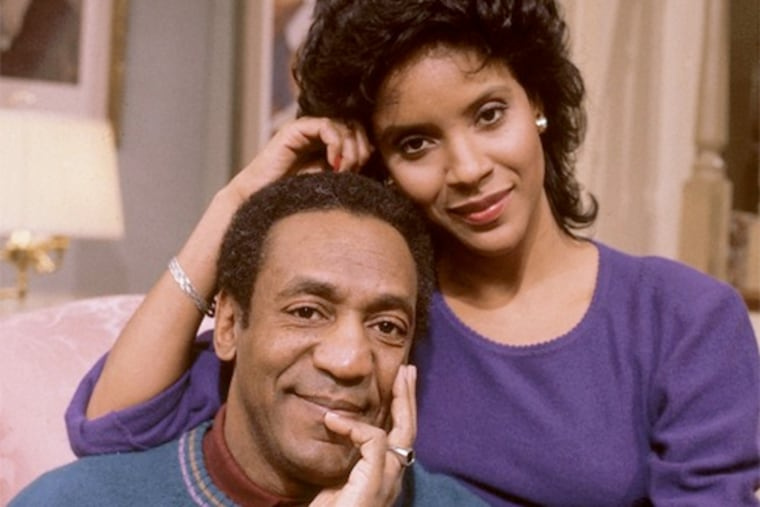
When The Cosby Show first aired on NBC on September 20, 1984, it wasn’t just another sitcom—it was a revolution. At a time when portrayals of African-American families were often limited to working-class struggles or caricature-based comedy, The Cosby Show introduced the world to the Huxtables: an upper-middle-class Black family living in a brownstone in Brooklyn Heights. What followed was eight seasons of groundbreaking television that blended warmth, humor, life lessons, and cultural depth.
A Different Kind of Family
Dr. Heathcliff “Cliff” Huxtable, played by Bill Cosby, was an obstetrician. His wife, Clair, portrayed by Phylicia Rashad, was a powerful and graceful attorney. Together, they raised five children with love, discipline, and a hefty dose of humor. What made this so revolutionary? For the first time on mainstream network TV, a Black family was not defined by struggle—but by success, unity, and love.
This wasn’t just good television. It was a cultural shift.
Crushing Stereotypes, One Episode at a Time
The Huxtables were aspirational without being unreachable. Each child represented different facets of growing up:
-
Sondra, the eldest, was the overachieving Ivy Leaguer.
-
Denise was the free spirit with a creative soul.
-
Theo dealt with school challenges and teenage growing pains.
-
Vanessa navigated adolescence and peer pressure.
-
Rudy, the youngest, brought charm, sass, and comic relief.
The show didn’t shy away from real issues either. From dyslexia to racism to cultural pride, The Cosby Show made sure its episodes carried weight without preaching.
In a 1985 episode, for example, when Theo struggled academically, the show revealed he had dyslexia—a rare moment of visibility for learning disabilities at the time. This storyline helped countless families recognize and support their own children with similar challenges.
Ratings That Changed Everything
By its second season, The Cosby Show was number one in the Nielsen ratings—and stayed there for five straight years. It attracted viewers of every race and background, something almost unheard of at the time. It wasn’t just a Black show. It was America’s show.
This cross-cultural appeal helped reshape the TV industry. Networks realized the demand for diverse, quality content. Shows like A Different World (a spin-off about Denise’s college life at a fictional HBCU), Family Matters, Living Single, and later Black-ish and Fresh Prince of Bel-Air owe their greenlights to the success of The Cosby Show.
Fashion, Jazz, and Proud Black Culture
The show didn’t just change TV—it changed culture.
Cliff Huxtable’s sweaters became iconic. The show featured jazz legends like Dizzy Gillespie and Lena Horne. Episodes often opened with lively musical numbers or dance sequences, celebrating African-American music and heritage.
The Huxtable home itself was a cultural symbol: filled with African art, jazz records, and an unmistakable sense of Black excellence.
The Clair Huxtable Effect
Clair Huxtable was a game-changer. Intelligent, poised, witty, and unapologetically powerful, she became a feminist icon. Audiences were blown away by her ability to switch from lawyer mode to nurturing mom without losing her edge.
In one now-legendary scene, she eviscerates her daughter’s arrogant boyfriend in a cool, confident monologue that went viral again decades later. Twitter still calls it “one of the coldest reads in TV history.”
Global Phenomenon
The Huxtables were not just beloved in the U.S.—they were global. The show aired in over 100 countries and was translated into dozens of languages. In South Africa, the show aired during apartheid and provided an aspirational counter-narrative. In Europe and Asia, viewers were fascinated by this well-to-do, relatable, and charming Black family.
The Shadow of Controversy
Of course, no conversation about The Cosby Show can ignore the legacy of its star. In recent years, Bill Cosby’s conviction (later overturned on a technicality) on sexual assault charges cast a long shadow over his work. Some networks pulled the show; some fans felt betrayed.
But for many others, the show itself—its messages, its representation, its impact—remains important and distinct from the actions of one man.
As Phylicia Rashad once said in an interview: “The show was bigger than one person. It was about us, all of us.”
The Legacy Lives On
Even now, The Cosby Show is still referenced in pop culture. Rappers name-drop Cliff and Clair. TikToks recreate iconic scenes. Young fans are discovering the show on streaming platforms and marveling at how fresh it still feels.
More than 30 years later, it still teaches us. It still makes us laugh. And it still reminds us what family, humor, and resilience look like on screen.
In a world that’s always changing, The Cosby Show gave us something to hold on to—a vision of Black joy, excellence, and humanity that endures.
